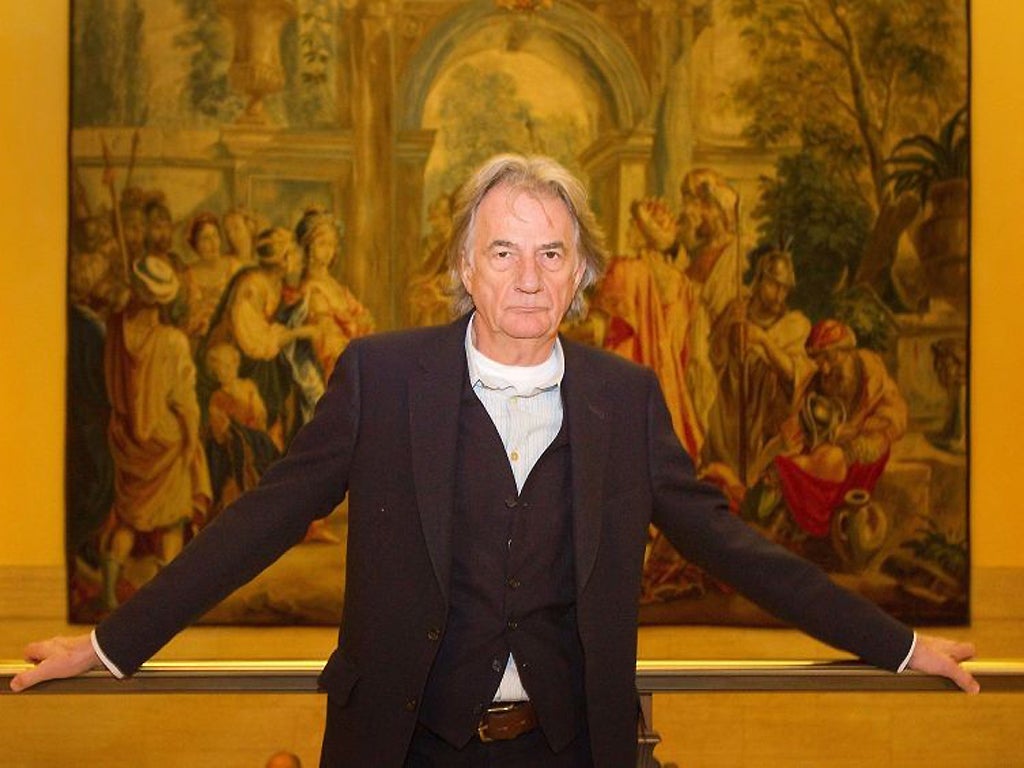Bill Gates, Steve Jobs, Mark Zuckerberg: Where exactly are the UK's equivalent business leaders?
Not nearly enough effort is being put on ambition in our top boardrooms


Your support helps us to tell the story
In my reporting on women's reproductive rights, I've witnessed the critical role that independent journalism plays in protecting freedoms and informing the public.
Your support allows us to keep these vital issues in the spotlight. Without your help, we wouldn't be able to fight for truth and justice.
Every contribution ensures that we can continue to report on the stories that impact lives

Kelly Rissman
US News Reporter
Where are the British business superstars of today? It’s a question that won’t be asked publicly when the CBI meets for its annual conference next week. Privately, though, the poverty of leadership at the top of British enterprise will be graphically illustrated.
That’s not to knock those who currently head the employers’ organisation. John Cridland, the director- general, is proving a worthy successor to Richard Lambert; Sir Mike Rake, the president, has a formidable track record as chair of BT and foil to Stelios when he chaired easyJet.
But how you wish for some Titan to address the hall and lambast the politicians and their civil servants for not removing the obstacles that hold industry back, that make creativity and risk-taking in this country so damned difficult.
Our masters at Westminster talk the talk, but, oh dear, progress is so painfully slow. Red tape, still present in vast quantities despite all the promises it would be eradicated; a taxation system that favours those offshore (just ask John Lewis what that means); a creaking infrastructure; school-leavers who lack the skills and application for work; unsympathetic banks – these are just some of the blocks to catapulting our economy forward.
This week, nothing highlighted our paucity of vision more than the country that was first in the world to build an atomic power station having to go, cap in hand, to the French and Chinese for a new generation of nuclear plants. The Hinkley Point C deal is shameful, an example of just how far we’ve sunk, how we’ve failed as a nation to tackle issues that have been staring us in the face for decades.
As we obsess about phone hacking by a small group of journalists or whether house prices are increasing, others get on and do it. They build new airports, runways and bullet trains. They sort out their energy needs for current and future generations. They ensure their children are equipped to work in the modern world. They develop banks to support small businesses (how long must we cast envious eyes at the German Mittelstand and Sparkassen systems?).
Our business community must shoulder some of the blame. Who is the best-known businessman in Britain? Probably Sir Richard Branson. What’s the Virgin boss doing? Only clearing off to the Caribbean and becoming a tax exile.
If not Branson, then the other contender is Lord Sugar, a man who is feted by the BBC as some sort of commercial guru but who, when he ran Amstrad, failed to invest sufficiently in R&D, with predictable results.
We’re good at design and innovation – witness Sir James Dyson, Sir Paul Smith – but we lack scale. We have no one in the same league as Bill Gates, Steve Jobs, Mark Zuckerberg, Sergey Brin or Larry Page.
As managers, we’re also not bad. But we like our corporate chiefs to conform. We don’t like them to be too radical. The City would prefer it if they did not take many risks. We have phrases to sum up how they should be: “safe pair of hands”, “solid”, “safety first”, “steady as she goes”, “one of us”.
The City – and it is the major financial institutions who determine these matters – doesn’t appreciate it, either, if a chairman or CEO says too much. There’s an inherent conservatism which says that those who speak out are self-servers and publicity-seekers – regardless of whether or not what they are saying makes sense.
Within our boardrooms too much emphasis is currently being placed upon compliance and governance, and not enough on ambition and growth. It’s hard to imagine that any of the towering business figures of the recent past – Lord Weinstock, Tiny Rowland, Lords Hanson and White, Sir Jimmy Goldsmith, Lord King – would have risen to the top in today’s climate and even if they got there, would have survived any length of time.
That’s not to say they were perfect: far from it. Order and structure, to put it mildly, were not their forte. Neither did they have much time for the ordinary folk. But alongside their greed and bullying aggression were backbone and a refusal to be cowed.
How I wish for one of them to still be around, to grab the mic at the CBI and challenge the suits to get off their backsides, to harangue the politicians and officials for years of failing to act. We prospered by borrowing, individually and corporately; by putting our faith in financial services. In 2008, that false edifice came crashing down. Now, five years later, nothing illustrates our collective complacency more than Hinkley Point C.
Join our commenting forum
Join thought-provoking conversations, follow other Independent readers and see their replies
Comments